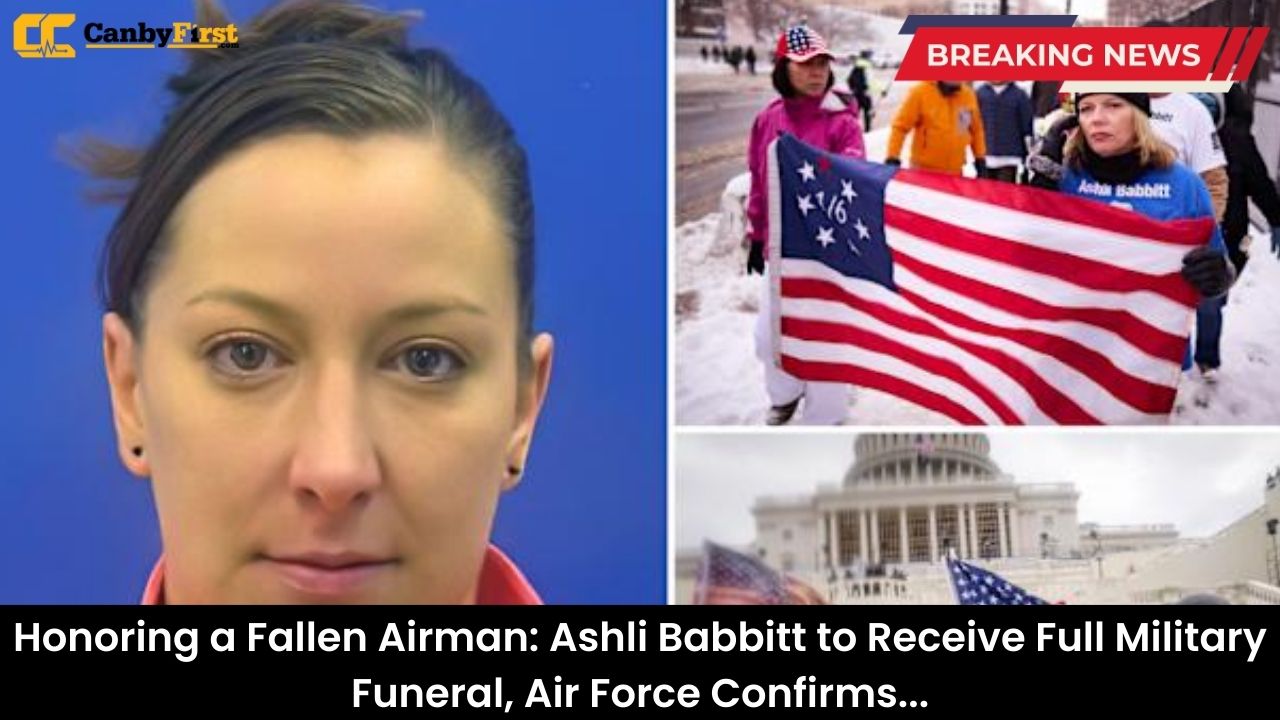Washington, DC, US: The United States Air Force has officially confirmed that Ashli Babbitt— the Air Force veteran whose death during the January 6, 2021, Capitol breach sparked national debate—will be accorded a full military funeral with honors. The announcement has reignited conversations about military protocol, memorial traditions, and the enduring divides in America’s political landscape.
Military Honors for a Veteran
The Air Force’s statement, released earlier this week, affirms that Babbitt, a 14-year Air Force logistician who served tours overseas and attained the rank of Senior Airman, is entitled to the ceremonial honors befitting her service. These honors typically include:
-
Presentation of the U.S. flag
Also Read
-
A rifle volley salute
-
The playing of “Taps”
-
An official military chaplain’s invocation
According to military regulations, any veteran who received an honorable discharge and served at least one term of enlistment qualifies for a funeral with full honors. Babbitt’s service record, which included deployments to Southwest Asia and a clean conduct ribbon, met these criteria.
Family’s Request and Community Response
Babbitt’s family submitted the necessary paperwork earlier this summer, seeking to ensure she receives the same recognition as thousands of other veterans. The Air Force’s formal approval came after an internal review of her service record and discharge paperwork.
Local veteran groups in San Diego County, where Babbitt was based before retiring, have expressed mixed sentiments. Some community members say honoring her military service should be separate from the contentious circumstances of her death, while others feel uneasy about a ceremonial tribute for someone involved in the Capitol riot.
The Circumstances of January 6
On January 6, 2021, Babbitt was among the crowd that forcefully entered the U.S. Capitol building. She was shot by a Capitol Police officer as she attempted to climb through a broken window leading to the Speaker’s Lobby. The incident was captured on video and widely circulated, fueling heated debates over law enforcement tactics and protest movements.
Subsequent federal inquiries concluded that the shooting was legally justified given the threat level and the officer’s line of sight. No charges were brought against the officer.
The Air Force’s Perspective
In its statement, the Air Force emphasized that its decision is grounded strictly in military guidelines regarding honorable service and discharge status. The branch noted that ceremonial honors reflect a veteran’s commitment and sacrifices, regardless of their actions after leaving active duty.
“Regardless of the nature of a veteran’s death, the Air Force’s commitment to honor military service endures,” the release read. “As long as the veteran’s service record meets established criteria, funeral honors are appropriate.”
Political Fallout
Political leaders have seized on the Air Force decision to fuel their broader narratives. Supporters of Babbitt’s role in January 6 view the funeral honors as a vindication of her patriotism, whereas critics argue that it glosses over the violent aspects of that day.
Several members of Congress have called for a policy review, suggesting that the military should reserve full honors exclusively for those whose contributions are unmarred by post-service controversies. Meanwhile, veterans’ advocacy organizations stress that altering longstanding honors protocols could set a troubling precedent.
Funeral Arrangements
According to Babbitt’s next of kin, the funeral service will take place in San Diego, California, later this fall. Plans include a procession through her hometown, a formal service at the National Cemetery, and a reception at a local veterans’ center.
Family members have invited fellow Air Force veterans, community leaders, and members of the public to attend, asking only for people to remember both her military achievements and the complexities of her final actions.
A Nation Divided
Babbitt’s case underscores the tightrope that institutions walk between honoring military service and grappling with the polarizing events of the past. As her funeral approaches, the Air Force’s decision reverberates far beyond protocol—touching on national conversations about accountability, remembrance, and the true meaning of service.
While the ceremonial honors will provide closure for her family and comrades-in-arms, the broader debate over how America memorializes its veterans—especially those embroiled in contentious moments—remains unresolved.












